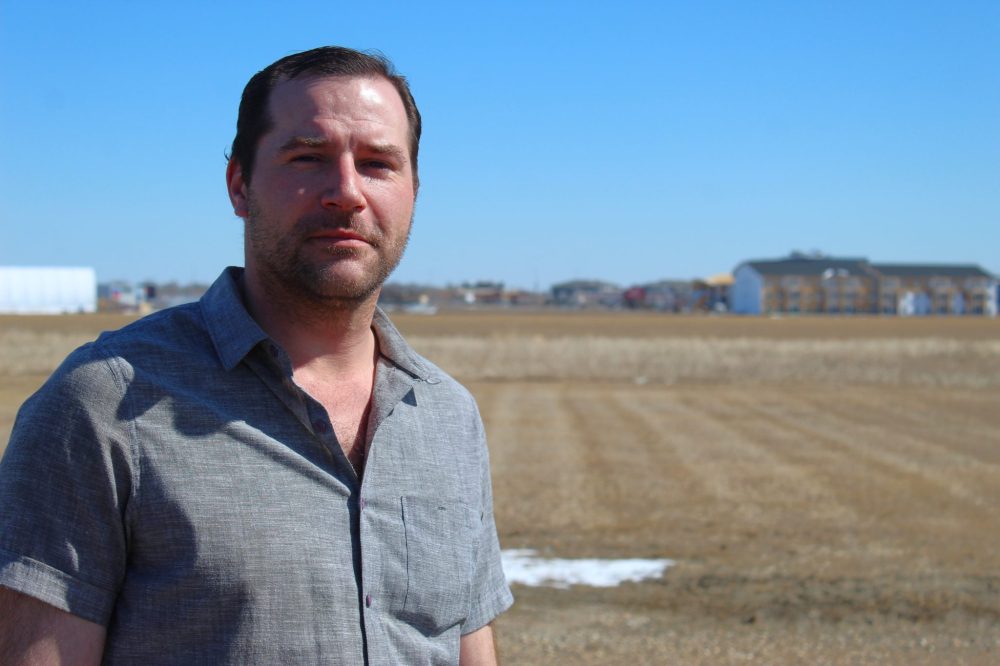PPC’s Gautron focus on tariff negotiations, immigration and housing
Advertisement
Hey there, time traveller!
This article was published 04/04/2025 (203 days ago), so information in it may no longer be current.
People’s Party of Canada (PPC) Provencher candidate Noel Gautron said the topic he is hearing most about from constituents is the economy.
“Two things that kind of immediately come to mind would be the United States’s tariff situation, and in addition to that would be cost of housing,” said Gautron.
Negotiation is the solution to the tariff risk to Canada’s economy, according to Gautron.

“Particularly with the current (U.S.) administration’s posturing it’s poor decision-making to further agitate it, as one has observed,” he said.
The other parties’ approach of Canada laying its own tariffs is the wrong approach according to Gautron and PPC leader Maxime Bernier.
“The administration has laid out a couple of their priorities fairly succinctly. And the faux nationalism is what I refer to it as, it imperils in excess of 60 percent of our economy.
“It’s not just grain, it’s not just manufacturing, it’s the whole bloody thing,” said Gautron.
“We physically can’t afford to deteriorate that trade position because we have geographic constraints that make trading with other partners more difficult than what might be optimal.
“Even trading amongst ourselves is difficult. We have more trade with the United States as provinces than we do in between provinces.”
Gautron believes there should be more interprovincial trade, but he points out Canada has been working on that for decades.
“All the provinces have various protected industries, which even in a crisis scenario I can’t see them giving up,” said Gautron.
He believes internal trade is hampered by demographics.
“We’ve had a declining birthrate since 1970,” said Gautron.
“We would need a naturally growing population, and that actually conveniently ties into the housing situation.”
Housing affordability is the other major area that the PPC has a very different solution proposed than other parties.
Gautron said their plan is to put a moratorium on all immigration.
In 2023, Canada had 471,808 immigrants, 58 percent of those under economic streams. That year, immigrants represented 28.9 percent of Canada’s labour force, according to last year’s federal annual report to Parliament on immigration.
Immigration levels nearly doubled from 2021-2024 compared to the 20 years’ prior average.
Immigration, Refugees and Citizenship Canada says on the Canada.ca website that in 2025 it aims to welcome 395,000 permanent residents, plus 305,900 new students with study permits and 367,750 new temporary workers.
That immigration report also mentions the strain on services and housing.
“Canada has experienced a decline in its vacancy rate in recent years, indicating a shortage of available apartments and houses for rent. The construction of new housing has also not been able to match the pace of population growth. In 2023, with a significant peak in immigrant arrivals, the vacancy rate reached a historic low of 1.5 percent, especially in big cities like Montréal, Toronto, and Vancouver where newcomers tend to settle,” reads the immigration report.
Gautron believes it is a compounding problem because the immigration system is less predictable than a population replaced by a higher birthrate.
“And I would argue it (high immigration) is probably one of the leading causes, at least financially speaking, why many of the younger households aren’t having children as quickly as we’d like them to,” said Gautron, adding Provencher is a bit of an outlier on birthrates compared to most of Canada.
Stopping immigration would include the economic streams that the government uses to try to recruit workers in sectors with worker shortages.
“We did 15 to 20 years of immigration in a very short period of time. So as soon as that economic picture clears up and we’re not having it where 39 year olds can’t afford a mortgage, that’s when we’d be reopening the immigration intake because we do need it especially on an economic skill set basis,” said Gautron.
Gautron also tied the lower birthrate exacerbated by economic pressures from immigration to the shortage of worker skills.
“Ultimately the big one in my mind – forget about education and everything else – if we’re not having kids, we’re very much hamstringing ourselves, both on a tax basis and even just skill set transfer.
“If you look at the average age of any trade or profession, things start to get a little spooky,” said Gautron.
He added that slower immigration rates in the future would help assimilate immigrants to Canada culturally and economically, avoiding isolation for some newcomer groups that he said sometimes bring cultural practices that go against Canadian beliefs. Gautron gave the example of throwing gay people off buildings, a practice carried out by the terrorist group ISIS. Most of the countries that group was based in have laws against homosexuality, several with the sentencing laws allowing for death.
What that multi-ethnic Canadian identity would be needs to be created, according to Gautron.
“It’s a very steep order because not only do we need cultural buy-in from all of our various… ethnic pockets in Canada, we need buy-in there but we also need buy-in politically. So it’s basically the thing where it can’t be directly an expression of partisan ideology.
“That’s where I draw on the United States as a good example because we need that centralized myth that’s very attractive whether you’re liberal, conservative, French, English, protestant, catholic, everything,” said Gautron.
The Ile des Chenes resident has been the PPC provincial coordinator for the last five years, and reached out to Bernier as soon as he heard the new party was being formed in 2018. Gautron ran in Winnipeg in the PPC’s first election in 2019, and in Provencher in 2021.
He said part of the reason he was drawn to the party was because of the freedom it gives its members to express themselves or even disagree with a policy point.
